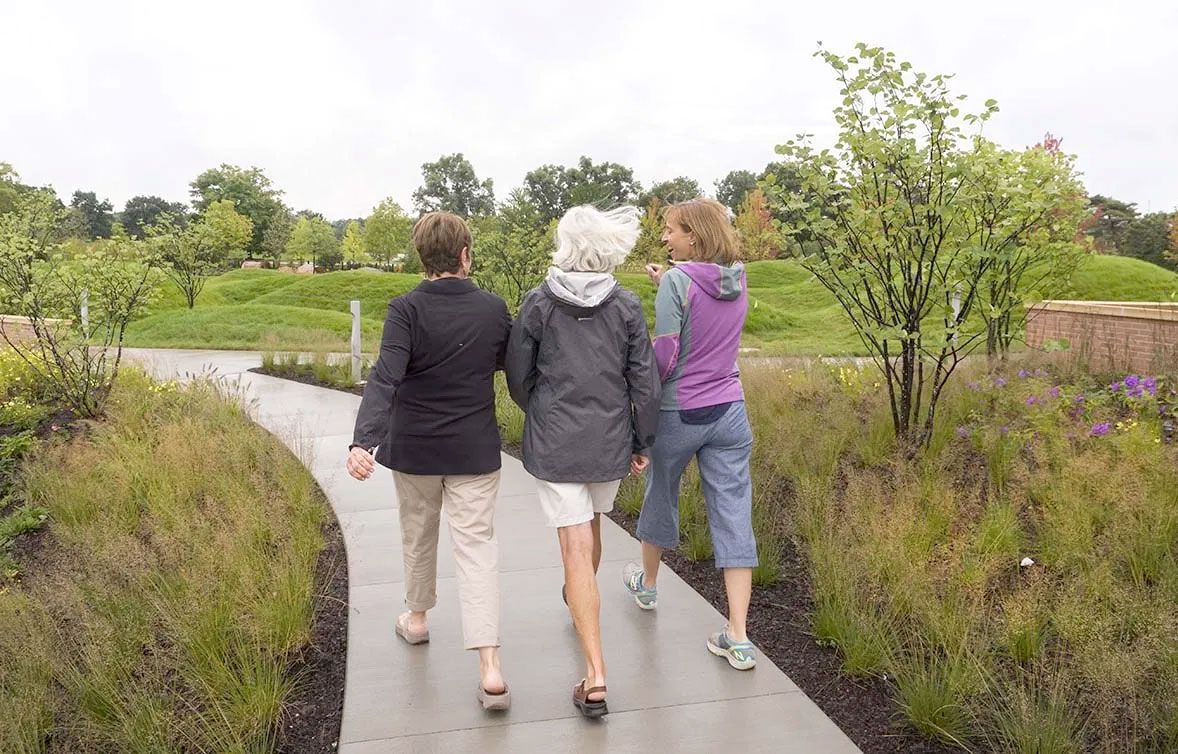

Learning
Garden Stories
Go Outside: It's Good for You
Interested in a healthier, happier life? Try connecting with the natural world. A new, technologically advanced body of research shows that spending time in nature can provide protection against cancer, high blood pressure, depression, stress, and more.

Take a walk in nature to improve your mood and your health.
A recent National Geographic article noted that advances in neuroscience and psychology have provided scientists with more tools to look at the way nature affects our brains and bodies. According to the article, “These measurements—of everything from stress hormones to heart rate to brain waves to protein markers—indicate that when we spend time in green space, ‘there is something profound going on,’” said University of Utah cognitive psychologist David Strayer.

Improve learning in the natural world.
University of Illinois environment and behavior researcher Ming Kuo found that nature has the ability to enhance the functioning of the body’s immune system. “Nature doesn’t just have one or two active ingredients,” she told the university’s College News. “It’s more like a multivitamin that provides us with all sorts of the nutrients we need. That’s how nature can protect us from all these different kinds of diseases—cardiovascular, respiratory, mental health, musculoskeletal, etc.—simultaneously.”
Other studies show that nature is essential to the well-being of children. Children learn and focus better, and are healthier and more relaxed in green spaces, researchers say. In its national guidelines on encouraging nature play, the National Wildlife Federation says, “Nature play is defined as a learning process, engaging children in working together to develop physical skills, to exercise their imaginations, to stimulate poetic expression, to begin to understand the workings of the world around them.”
At the Chicago Botanic Garden’s Nature Play Garden, visitors of all ages and abilities can roll down hills, splash in water, hide in logs, and more. The Nature Play Garden is part of the Regenstein Learning Campus.

